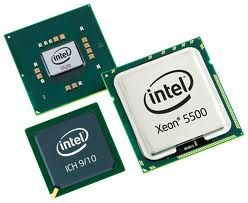There’s a certain sense to recent rumors that Apple may trade the Intel chips in its Macs for the company’s own processors. Apple is, after all, the poster child of a company that wants to control its own destiny: It makes its own hardware and software, and is a proponent of the "walled garden" ecosystem exemplified by its iTunes Store and App Store.
Even more recently, Apple has taken deeper control of its processor design; the iPhone 5’s A6 chip uses Apple’s own custom ARM-based design, rather than taking a standard ARM core and just dropping it in, as the company has with past iOS devices.
However, it’s one thing to design a CPU that’s different but software compatible with existing designs, and another thing to drop in a completely different core. Apple has done that with the Mac twice in the past, once, when it migrated from Motorola’s 68000-based chips to the PowerPC architecture it co-designed with IBM and Motorola, and again when it transitioned from PowerPC to Intel. It wasn’t a painless process in either case, but in both cases Apple had a key advantage: It included emulation technology that allowed the newer CPUs to run old Mac binaries (most of them, anyway). In the latter case, especially, the Intel CPUs were considerably faster than the PowerPC processors, so running in emulation mode didn’t adversely affect performance too badly.
Moving from Intel to ARM is a different proposition, for two key reasons: First, current ARM performance really doesn’t compare with what Intel’s processors offer when it comes to the kind of performance expected from MacBooks and iMacs. Secondly, the currently shipping ARM-based products are 32-bit. ARM announced the ARMv8 64-bit architecture at the ARM Tech Conference on October 30th, but products based on ARM’s 64-bit core are unlikely to hit the market until sometime in 2014.
IDG News Service







Subscribers 0
Fans 0
Followers 0
Followers